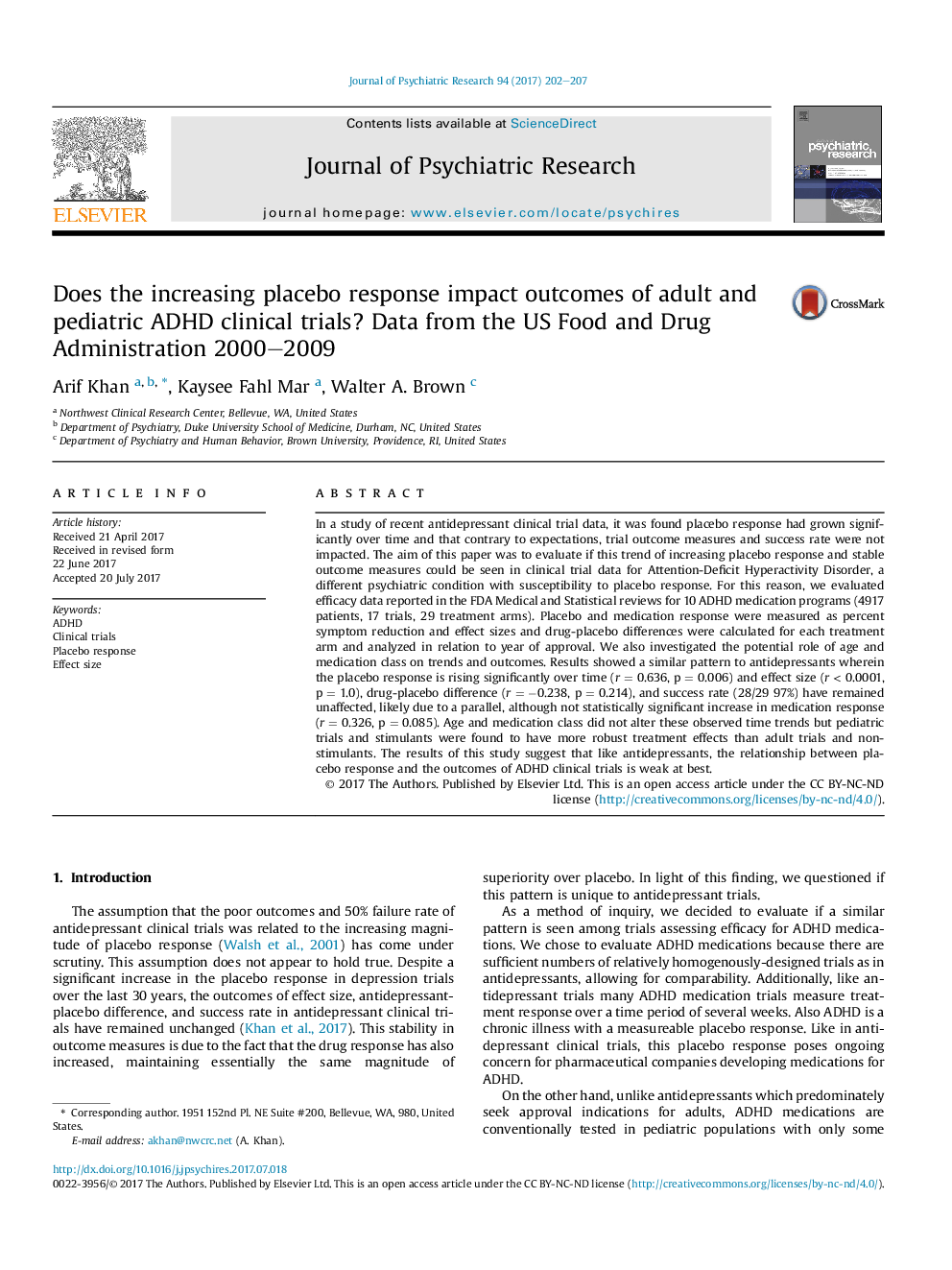| Article ID | Journal | Published Year | Pages | File Type |
|---|---|---|---|---|
| 4932049 | Journal of Psychiatric Research | 2017 | 6 Pages |
In a study of recent antidepressant clinical trial data, it was found placebo response had grown significantly over time and that contrary to expectations, trial outcome measures and success rate were not impacted. The aim of this paper was to evaluate if this trend of increasing placebo response and stable outcome measures could be seen in clinical trial data for Attention-Deficit Hyperactivity Disorder, a different psychiatric condition with susceptibility to placebo response. For this reason, we evaluated efficacy data reported in the FDA Medical and Statistical reviews for 10 ADHD medication programs (4917 patients, 17 trials, 29 treatment arms). Placebo and medication response were measured as percent symptom reduction and effect sizes and drug-placebo differences were calculated for each treatment arm and analyzed in relation to year of approval. We also investigated the potential role of age and medication class on trends and outcomes. Results showed a similar pattern to antidepressants wherein the placebo response is rising significantly over time (r = 0.636, p = 0.006) and effect size (r < 0.0001, p = 1.0), drug-placebo difference (r = â0.238, p = 0.214), and success rate (28/29 97%) have remained unaffected, likely due to a parallel, although not statistically significant increase in medication response (r = 0.326, p = 0.085). Age and medication class did not alter these observed time trends but pediatric trials and stimulants were found to have more robust treatment effects than adult trials and non-stimulants. The results of this study suggest that like antidepressants, the relationship between placebo response and the outcomes of ADHD clinical trials is weak at best.
